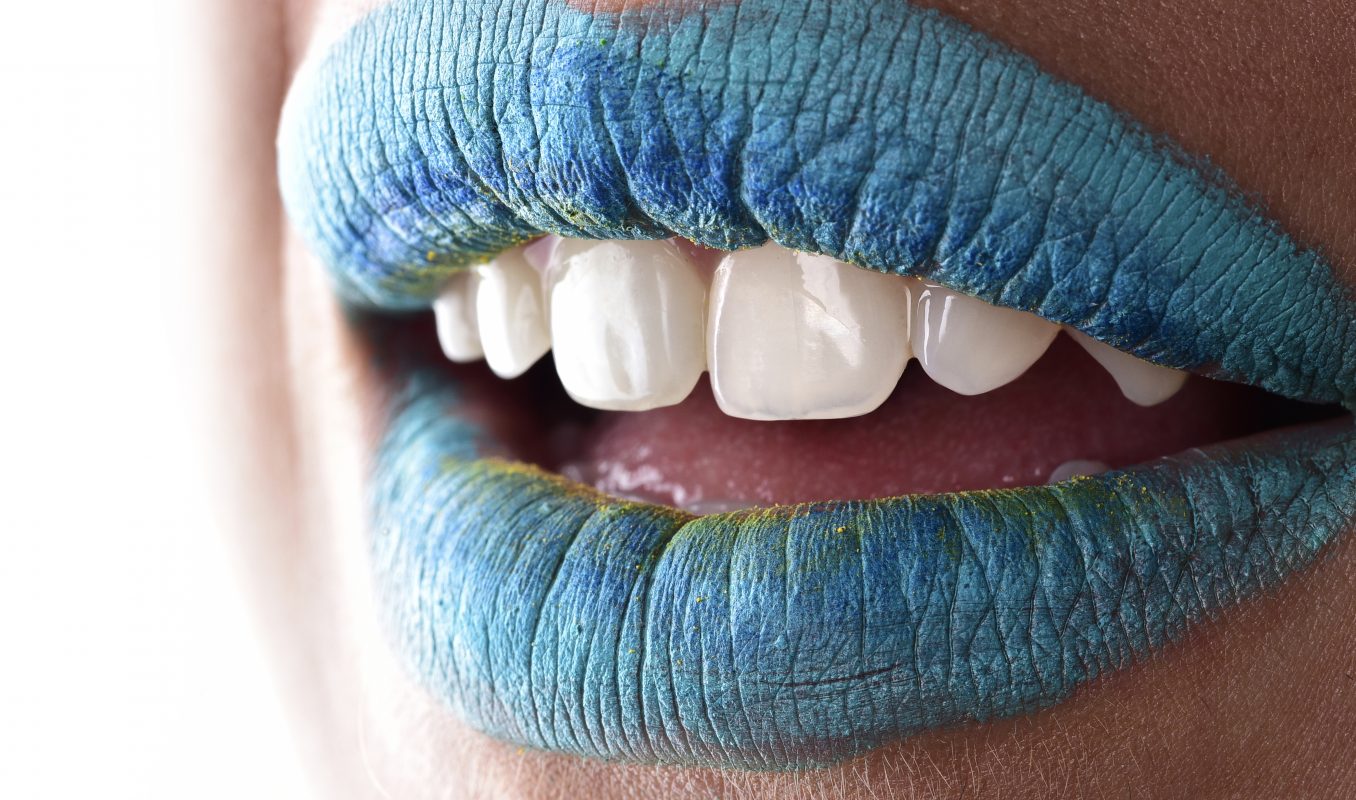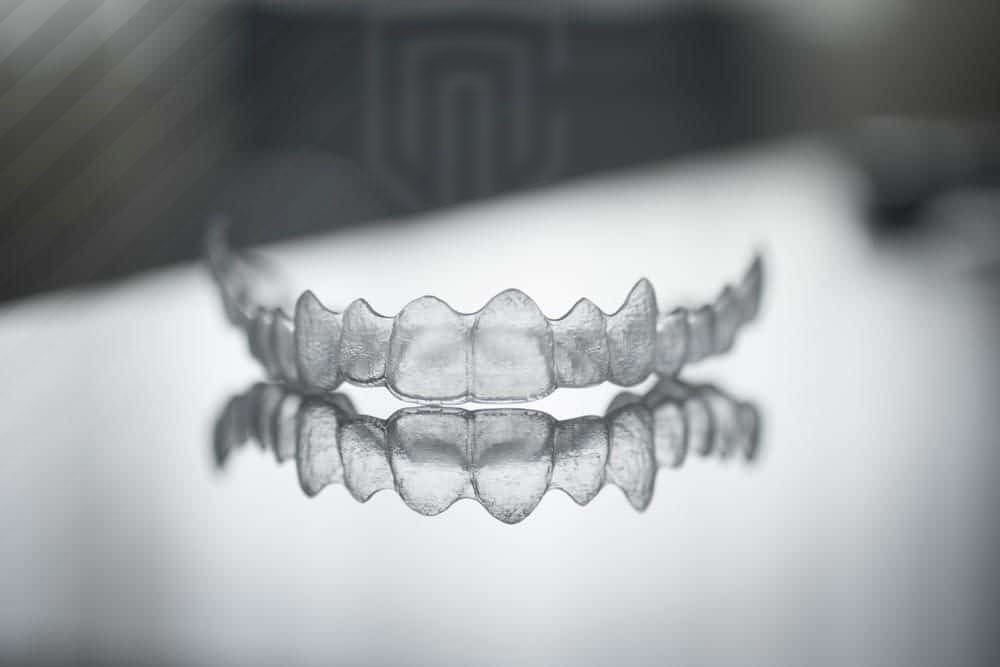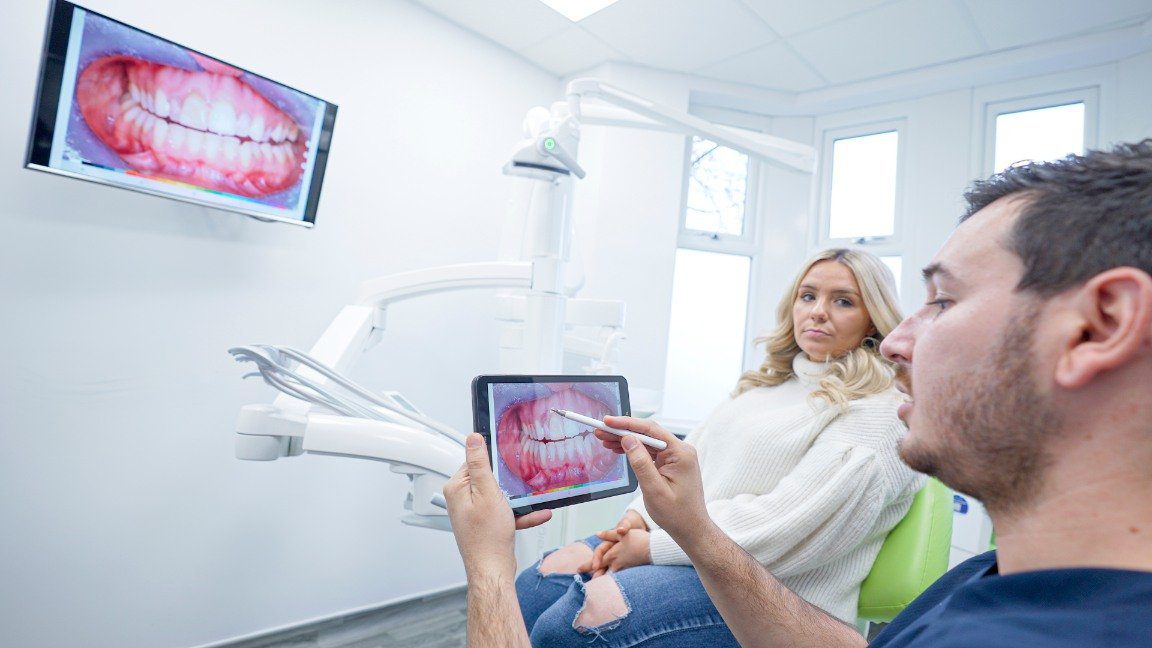Veneers are thin shells made of tooth coloured porcelain that are custom made and bonded to your teeth to improve their appearance (changing the colour, shape, size or length). Porcelain veneers are usually made in the lab and are highly resistant to staining.
FAQs
Crowns cover your teeth like a cap. A veneer is a thin shell that is applied to the front of your tooth with less damage to the tooth tissues (like a contact lens).
Generally, bonded veneers require two visits: one to shape the teeth and one to cement these natural looking restorations to the teeth. Between visits, your dentist can place attractive provisional veneers to help prevent sensitivity, allow function, and provide a nice smile. These temporaries are designed to be in your mouth for a limited time but should be comfortable until your new veneers / smile is completed.
There is no higher or lower prevalence of tooth decay with veneers as long as they receive appropriate care at home.
The preparation of veneers preserves the most amount of tooth structure as very little needs to be removed. They can vastly improve the appearance of your teeth, and gum tissues respond well to dental veneers. The colour can be custom selected to match the other teeth and these types of restorations are extremely stain resistant.
Once you have had your tooth prepared for the veneer, the process is not reversible. In the case that a veneer cracks, it is difficult to repair without having to replace the entire veneer. With people who have poor gum health (active gum disease), veneers are not a good option. It is important not to have habits like pen-chewing or nail-biting as these can crack the veneer. In addition, people who grind or clench their teeth are at risk for chipping or cracking their veneers. Lastly, veneers are still susceptible to decay so it is important that you maintain optimal oral health and visit your dentist regularly.
Dental veneers are a great solution for people with discoloured, worn down, chipped, misaligned, uneven or irregularly shaped teeth. Porcelain Veneers are a good solution to close a gap that may exist between your front teeth.
Because a very thin layer of tooth enamel must be removed to accommodate the thickness of the veneer, the process isn’t considered reversible.
Correctly designed and accurately placed porcelain veneers by an experienced cosmetic dentist can last over 10-15 years. They do not require any special care other than regular brushing, flossing and visits to the dentist.
This aesthetic issue will be addressed in your cosmetic treatment planning by utilising digital smile design or chair side trial smile helping to foresee any concern and ‘test driving a smile’ prior to reshaping your teeth. Most individuals whiten their natural teeth prior to veneers preparations, in order to be able to have their veneers matched to a whiter shade.
There will likely be some sensitivity to hot and cold food and beverages for a short time due to having a thin layer of enamel removed. This should disappear in a few days. Avoiding hot and cold foods is recommended for the first few days to allow the veneers to settle.
Porcelain veneers are very strong. Nevertheless, porcelain is a glass and can crack if very strong forces are applied. It is advised to avoid chewing ice, hard nuts, candy apples, popcorn etc. The natural teeth are often damaged by these same foods. While porcelain veneers are very resilient, they aren’t indestructible.
Yes, this will eventually damage your veneers just as this habit will grind down natural teeth.
STILL HAVE A QUESTION?
Contact us at North Cardiff and Dental Implants on 029 2267 9999 to find out more about any of our treatments or book a consultation with one of our experienced clinicians.





